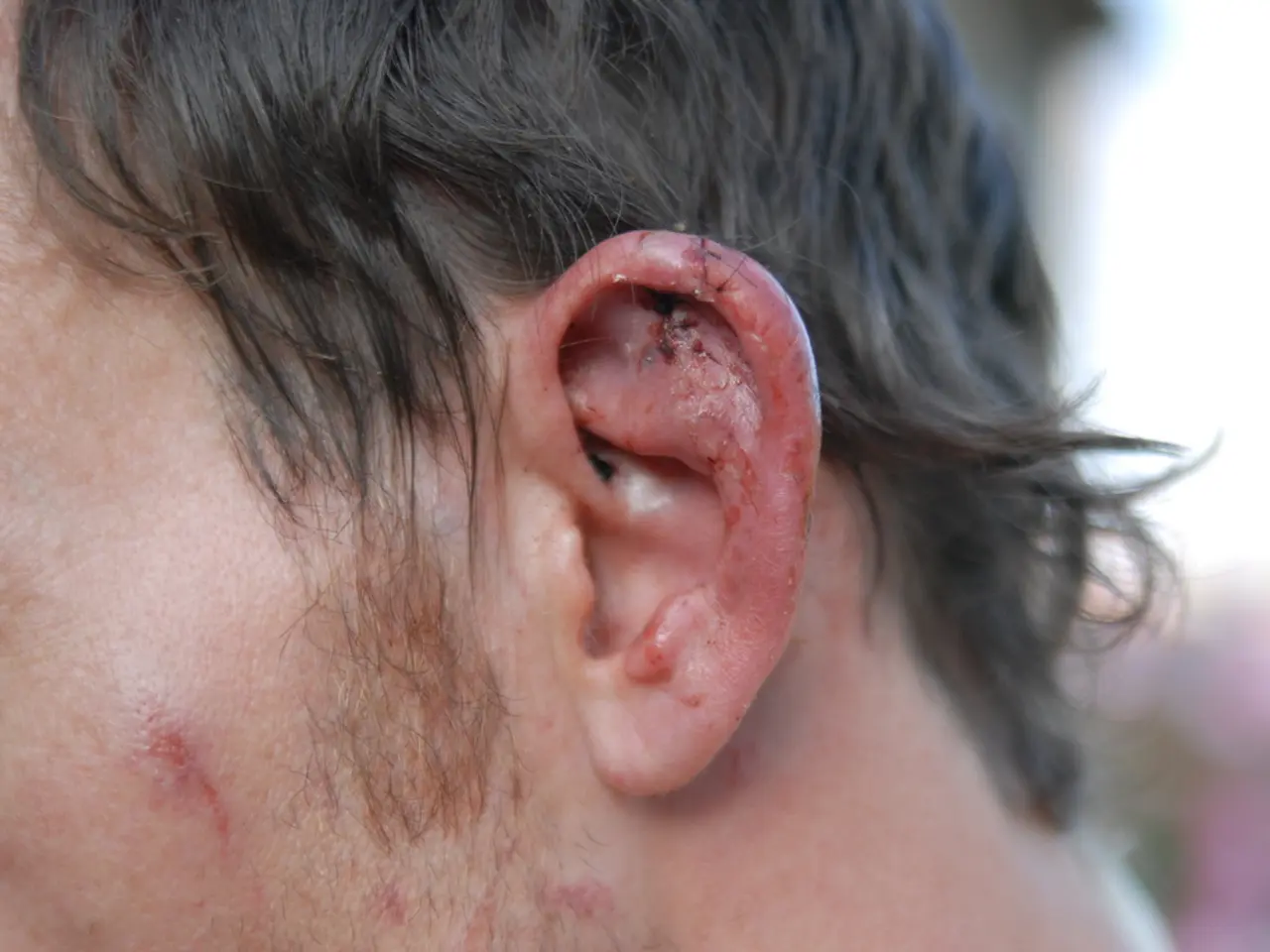Hair Loss Overwhelming: Origins, Remedies, and Possibility of Re-growth
**Struggling with Alopecia Universalis? Here's What You Need to Know**
Alopecia universalis is a severe form of alopecia areata, an autoimmune disorder that causes complete hair loss on the scalp, body, and even eyelashes and eyebrows[1]. The condition occurs when the immune system mistakenly attacks the hair follicles, stopping hair production[1][2][3].
Potential causes of alopecia universalis include an autoimmune response, genetic predisposition, environmental and lifestyle triggers, and associated autoimmune syndromes[1][3]. The immune system may target hair follicles as if they were harmful invaders, similar to other autoimmune diseases like vitiligo, lupus, type 1 diabetes, and thyroid disorders[1][3][4].
There is often a hereditary component, with a higher risk for individuals with family histories of autoimmune diseases[1][3]. Severe emotional or physical stress, viral infections, bacterial infections, and allergic reactions can trigger or worsen the condition[1][2][3]. Alopecia universalis may co-occur with other autoimmune conditions such as Hashimoto’s thyroiditis and Addison’s disease[4].
Treatment for alopecia universalis aims to suppress the immune response and stimulate hair regrowth. Corticosteroids, immunotherapy, topical immunomodulators, JAK inhibitors, stress management, and lifestyle changes are some of the available treatments[1][2][3][4].
Corticosteroids reduce inflammation and immune attack on follicles, while immunotherapy agents induce an allergic reaction to distract the immune system from attacking hair[1][2][3]. Topical immunomodulators like minoxidil and topical calcineurin inhibitors are also used. JAK inhibitors, such as tofacitinib and ruxolitinib, promote hair regrowth by targeting immune signaling pathways[1][3].
Alopecia universalis does not have a permanent cure, but early intervention and a comprehensive approach offer the best chance of hair regrowth and symptom control[1][3]. Treatment effectiveness varies widely, and a personalised treatment plan may be necessary for each individual.
Support groups and stress management techniques may help those dealing with alopecia universalis cope with the emotional and mental health issues associated with the condition[1]. It is important to remember that alopecia universalis is not contagious.
In some cases, people with alopecia universalis may experience a full recovery, but only 10 percent of cases will result in a full recovery[1]. In the meantime, using sun-protective head coverings, scarves, and hats is recommended for those without hair on their heads.
Research continues into finding more effective treatments for alopecia universalis. A topical medicine containing natural herbal ingredients showed some promise for hair regrowth, and emerging treatments are being developed[1]. The National Institutes of Health (NIH) state that no therapy has been found to cure alopecia universalis[1].
In one remarkable case, a man experienced a total regrowth of his hair after being treated with tofacitinib citrate, a psoriasis drug[1]. While such success stories are rare, they offer hope for those struggling with the condition.
[1] National Alopecia Areata Foundation. (2021). Alopecia Universalis. Retrieved from
- Alopecia universalis is a severe form of alopecia areata, which falls under the category of medical-conditions and chronic-diseases related to health-and-wellness.
- Science has identified various potential causes of alopecia universalis, including autoimmune responses, genetic predisposition, environmental triggers, and associated autoimmune syndromes.
- Treatment for alopecia universalis often involves a combination of suppression of the immune response and stimulation of hair regrowth, using methods like corticosteroids, immunotherapy, topical immunomodulators, JAK inhibitors, stress management, and lifestyle changes.
- In addition to medical treatments, mental-health support and stress management may help those dealing with alopecia universalis cope with the emotional impacts of the condition.




